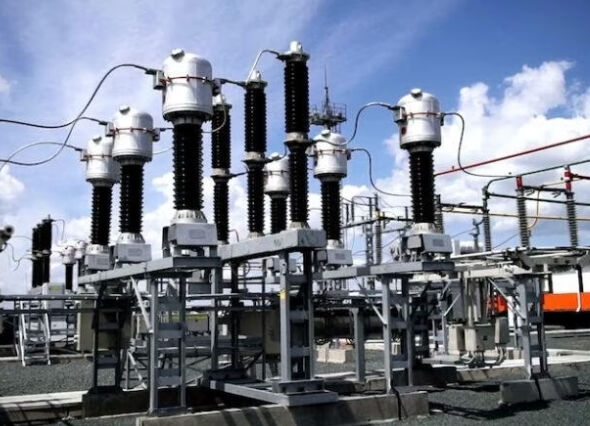The country’s poor electricity supply has made Nigerians rely on diesel and petrol power generators for their electricity need, weighing heavily on business’ operating costs. It was even worsened when the government removed fuel subsidies in June 2023, causing the average pump price of petrol to jump from N238.11 per litre to over N600 per litre. This has forced Nigerians to turn to solar power and biomass for their electricity needs.
Nigeria with a population of over 200 million had an electricity consumption per capita of 147 kilowatt-hours in 2022, while South Africa with a population of over 60 million boasted of electricity consumption per capita of 3,566 kilowatt-hours during the same period, according to the World Bank.
According to the Central Bank of Nigeria, the country’s average per hour data stood at 3,689.700 MWh in September 2023 as it continues to struggle with low power generation and poor distribution infrastructure.
The national grid collapsed 12 times in 2023 and experienced the first collapse this year on February 4 as generation companies blamed low gas supply.
Despite investing in various expensive generators to address the issue of unreliable power supply, the fumes and noise generated by the generators posed health challenges especially business centers, offices and factories.
Nigeria’s electricity challenge has been worse that the Minister of Power, Mr Adebayo Adelabu, recently told heads of agencies in the Nigerian Electricity Supply Industry that anyone who posed a threat to the performance of the power sector would be shown the way out.
The minister gave the warning at the closing ceremony of a two-day Ministerial Retreat on the Integrated National Electricity Policy and Strategic Implementation Plan: Navigating and Aligning on the Plan to Enhanced Electricity Reliability’ in Abuja.
“As they say, a chain is as good as its weakest link. So, if anybody poses a threat to our delivery or performance. Like I said in our earlier meeting, before they show me the way out, we are also going to show the person the way out,” he noted.
Perhaps the minister’s anger cannot be divorced from the fact that there had been significant transition to solar panels by rich Nigerians especially after the removal of petrol subsidies last year.
For small and medium enterprises and less endowed citizens however, the burden of paying expensive bills for unstable power supply has been heavy as the Nigerian Electricity Regulatory Commission increases electricity costs per kilowatt-hour.
According to the Tracking SDG7’s Energy Progress Report, Nigeria faces a significant energy access challenge, with more than 40 per cent of its population, approximately 92 million people, lacking access to grid electricity. This makes Nigeria the country with the largest energy access deficit globally.
Despite Nigeria’s capacity to generate 13,000 MW of electricity, the daily transmission to the grid is limited to less than 5000 MW. This is primarily due to challenges such as ageing transmission infrastructure and unreliable gas supplies.
Consequently, a substantial part of the population continues to resort to costly and environmentally harmful fuel-powered generators to make up for the deficiencies in the grid.
A new report by the International Renewable Energy Agency indicated that nearly 60 per cent of Nigeria’s energy demand in 2050 can be met with renewable energy sources, saving 40 per cent in natural gas and 65 per cent in oil needs at the same time.
The Chairman of the Association of Power Generation Companies, Joy Ogaji, asserted that the potential of renewable energy in Nigeria is huge.
She said, “The country has solar radiation of 3.5 to 7.0 kWh/m2 per day and 427,000MW can be generated in Nigeria from solar alone.”
According to the Nigerian Meteorological Agency, Nigeria experiences an average of 6.25 hours of sunshine daily, suggesting abundant opportunities for harnessing solar energy.
“The positive transformation is credited to the growing embrace of solar energy as a renewable source, coupled with ongoing technological advancements that improve battery technology and photovoltaic capacity,” the agency noted.
Recently, the Chief Executive Officer of Ikeja Electric, Folake Soetan, highlighted that Nigeria’s solar energy potential was estimated to be around 6,500 terawatt hours annually, surpassing the country’s current electricity output of approximately 3,570 megawatts per day.

